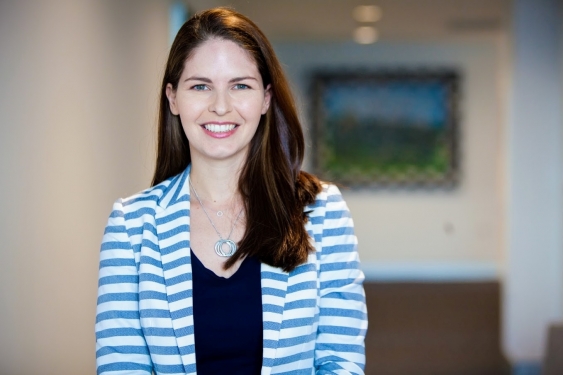Childhood brain cancer survivor program secures $1.9m grant
UNSW Professor Claire Wakefield and her team at UNSW are leading a program to help childhood brain cancer survivors improve their confidence, manage their health and improve their quality of life. The trial to roll out and test the effectiveness of the program – called Re-engage – was launched last month.
Funded by a $1.9 million grant from the Government’s Australian Brain Cancer Mission, part of the Medical Research Future Fund (MRFF), the program is part of a $9.9 million investment in brain cancer survivorship research announced by the Australian Government.
“Over 90 per cent of childhood brain cancer survivors have health problems after they finish cancer treatment, yet most Australian survivors are not receiving the follow-up care they need to manage these problems,” Prof. Wakefield said.
“Re-engage is a distance-delivered program that offers survivors two nurse consultations and careful case review by an expert team. This means that survivors can access support no matter where they live. Our nurses create a care package for survivors which includes a summary of their care needs, a letter for their GP, and education about healthy lifestyles.”
Prof. Wakefield said the pilot study of Re-engage confirmed that the program significantly improved survivors’ confidence to manage their health. The pilot study was supported by The Kids’ Cancer Project, Cancer Council NSW, and Kids Cancer Alliance.
The findings of the pilot were published last week in the Journal of the National Comprehensive Cancer Network. Six months post-program, all survivors said Re-engage was beneficial, with 84 per cent reporting satisfaction with their care and 73 per cent saying it improved confidence to manage their health.

Professor Claire Wakefield. Photo: Rebecca Collins.
The next step in the research project – the Re-engage trial – is significantly larger and includes childhood brain cancer survivors treated at Sydney Children’s Hospital, Randwick, The Children’s Hospital at Westmead and Perth Children’s Hospital. The trial will evaluate the impact of Re-engage on survivors’ quality of life and their ability to self-manage their survivorship care. The trial also focusses on developing and testing a detailed implementation strategy so that Re-engage can be rapidly rolled out nationwide.
Carole Boreham’s daughter, Heather, is a childhood brain cancer survivor. Heather received care at the Sydney Children’s Hospital in 1991 and her family helped design the Re-engage trial. “This journey doesn’t end when you leave the hospital, far from it! It is only the beginning of what we hope to be a very long-life journey. Any ongoing support is invaluable in our efforts to keep our children healthy, productive, valued and appreciated throughout their lives,” Carole said.
“We are very grateful for all the care Heather has. We are aware that children with the same diagnosis don’t always share the same journeys so a ‘one size fits all’ approach is not appropriate. More research into survivorship is required in order to bring about the best outcomes for our brain tumour survivors.”
Professor Richard Cohn, Director of the Survivorship Program in the Kids Cancer Centre at Sydney Children’s Hospital said: “Re-engage aims to give patients and their primary health care providers the essential information required for informed and supported cancer-directed, comprehensive follow-up care.
“To overcome barriers to hospital attendance and overcome the tyranny of distance for rural and remote survivors, advances in technology are used to facilitate access to the advice of a multidisciplinary team and to encourage as much care as possible close to home.”
A media release by The Hon Greg Hunt MP, Minister for Health, said the government was supporting new approaches and technologies to improve communications between brain cancer survivors, their families, carers and health care professionals. “The Australian Brain Cancer Mission aims to double the survival rates and improve the quality of life of people living with brain cancer over the decade to 2027, with the longer term aim of defeating brain cancer,” it stated.
To learn more about the Re-engage program, or to get involved, please visit:

